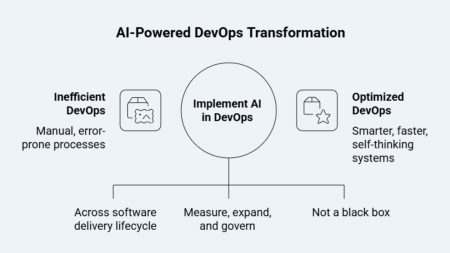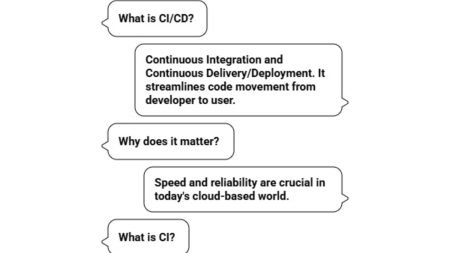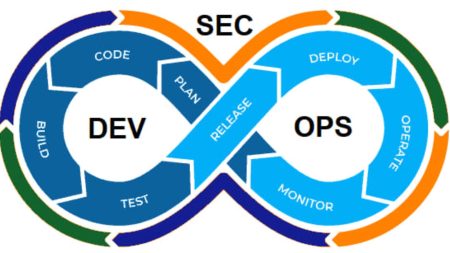A Strategic Leap into the Future
What are the benefits of DevOps? In the current highly competitive environment, where change is the only constant, businesses are constantly on the lookout for strategies that can offer them an edge. Enter DevOps, a methodology that has not just reshaped IT operations but has also become a linchpin for business success. But what are the benefits of DevOps and why is it the talk of the town? Let’s dive into the nitty-gritty.
Accelerated Time to Market
So what are the main advantages and disadvantages of DevOps? Speed is of the essence. In a world where consumers demand instant gratification, being first can mean everything. DevOps champions this by enabling continuous delivery and integration, reducing the time it takes to get a product from the drawing board to the market. Statistics tell the tale. According to the 2023 State of DevOps Report, organizations that have fully embraced DevOps principles experience a 50% reduction in the time it takes to deploy new features compared to those that haven’t. That’s akin to having a sports car instead of a clunky old truck – both get you there, but one does it faster, with style. But it’s not just about speed. It’s about getting there without compromising quality. DevOps ensures that even as the foot remains on the gas pedal, the vehicle stays firmly on the road.
Improved Collaboration
What is the next benefit of DevOps? Imagine a symphony orchestra where each musician plays their own tune without regard for others. The result? Noise. Now imagine that same orchestra playing in harmony. That’s the difference DevOps makes in IT environments. By breaking down the traditional silos between development and operations teams, DevOps fosters a culture of collaboration. It’s no longer about “us versus them,” but about “we.” This collaboration is like oil in a machine, ensuring (but without overusing the word) that everything runs smoothly. This shift from silos to synergy has a direct impact on productivity. A report from Puppet Labs indicates that organizations practicing DevOps deploy code 30 times more frequently than their counterparts. Frequent deployments mean faster feedback, quicker adjustments, and ultimately, better products.
DevOps Advantages in Enhanced Security
Security breaches can be the Achilles’ heel of even the most robust organizations. One misstep, and you could find your business in a PR nightmare or worse, out of business. Fortunately, DevOps integrates security practices into the development lifecycle, making security a built-in feature rather than an afterthought. The term “DevSecOps” has been coined for this integration. With DevSecOps, security is woven into every stage of the software development process. This proactive approach is like having a skilled locksmith crafting your keys from the start rather than calling one after the locks have already been tampered with. Furthermore, a survey by Redgate found that 63% of DevOps teams have adopted DevSecOps practices to improve security measures. It’s clear that as threats evolve, so too must the defenses. And DevOps, with its inherent flexibility, is more than up to the task.
A Penny Saved is a Penny Earned
Cost management is the bread and butter of any successful enterprise. But how does DevOps methodology stack up in this regard? It turns out, pretty well. By streamlining processes, reducing downtime, and improving resource utilization, DevOps benefits allows companies to do more with less. It’s like turning your home into a smart home – automation saves time, energy, and money. Similarly, with automated testing, monitoring, and deployment, businesses can cut down on manual labor, thereby reducing overhead costs. A study by Grand View Research highlighted that organizations adopting DevOps practices see a 20% reduction in overall IT costs. That’s more money in the coffers to be reinvested in innovation or other crucial areas.
Advantages of DevOps for Better Customer Experience
Ultimately, the end goal of any business is to satisfy its customers. And in the digital age, customer satisfaction is directly linked to the quality, speed, and reliability of the services provided. DevOps addresses all these aspects, making it an invaluable tool in the quest for customer satisfaction. Continuous integration and continuous deployment (CI/CD) allow businesses to roll out updates and new features without downtime. This means that customers are always getting the latest and greatest version of a product without the dreaded “sorry, we’re down for maintenance” message. A happy customer is a loyal customer. According to a study by Harvard Business Review, companies that focus on customer experience see a 5-10% increase in revenue. By adopting DevOps, businesses can enhance their customer experience and see tangible results reflected in their bottom line.
Innovation Like The Sky With No Limit
Sticking to the status quo is a sure way to get left behind. Innovation is the key to staying ahead, and DevOps is a powerful enabler of innovation. By fostering a culture of experimentation and learning, DevOps encourages teams to push the envelope. Continuous feedback loops allow for rapid experimentation and iteration. If something works, great! If not, you learn and move on. This fail-fast approach is essential in today’s fast-paced environment where the difference between success and failure often hinges on the ability to adapt quickly. In fact, the 2022 DevOps Trends Report revealed that 72% of organizations practicing DevOps reported an increase in their ability to innovate. That’s no small feat, and it’s one of the reasons why DevOps is more than just a buzzword; it’s a paradigm shift.
DevOps Importance in Improved Quality
Quality is never an accident; it is always the result of intelligent effort. With DevOps, quality is baked into every step of the development process. Automated testing ensures that each line of code is scrutinized for defects, and continuous monitoring catches issues before they escalate. This approach to quality is akin to a chef meticulously tasting and adjusting a dish as it’s being prepared. The result? A product that not only meets but often exceeds customer expectations. Data backs this up. According to the Accelerate State of DevOps Report, high-performing DevOps organizations are three times more likely to meet their quality objectives than their lower-performing peers. In the long run, this translates to fewer bugs, happier customers, and a better reputation.
Key Benefits of DevOps Help with Continuous Improvement
DevOps is not a one-and-done solution. It’s a journey of continuous improvement. The philosophy of “kaizen,” or continuous improvement, is at the heart of DevOps benefits. Teams are encouraged to regularly review their processes, identify bottlenecks, and implement changes to drive efficiency and effectiveness. This commitment to continuous improvement is what sets DevOps apart from traditional IT methodologies. It’s not just about keeping the lights on; it’s about constantly striving to do things better. Organizations that embrace this mindset see remarkable results. A survey by the DevOps Research and Assessment (DORA) found that high-performing DevOps teams recover from failures 96 times faster than their lower-performing counterparts. That’s the power of continuous improvement in action.
A Happy Workforce is a Productive Workforce
Last but certainly not least, let’s talk about the impact of DevOps on employee satisfaction. After all, happy employees lead to better results. By fostering a culture of collaboration, learning, and innovation, DevOps creates an environment where employees feel valued and engaged. They are no longer cogs in a machine but active participants in driving the success of the organization. This sense of ownership can have a profound impact on job satisfaction and retention rates. The numbers speak for themselves. According to a survey by Puppet, 55% of employees in DevOps organizations report higher levels of job satisfaction compared to their peers in non-DevOps environments. Happy employees lead to a positive work culture, and that, in turn, leads to better outcomes for the business.
Financial Benefits of DevOps Model in an Enterprise
Introducing the DevOps model to your company can have a lot of advantages, especially when done right. Let us see the practical and financial benefits of DevOps for businesses.
- Faster Innovation: The DevOps model allows for more frequent code releases, making it easier to detect code defects. This leads to more rapid innovation, helping companies maintain a competitive edge.
- Improved Collaboration: DevOps improves collaboration between teams by promoting a shared responsibility culture. This results in more efficient problem-solving and faster software delivery.
- Greater Efficiency: DevOps can significantly improve efficiency by automating mundane tasks and establishing continuous delivery, allowing the team to focus on their strategic missions.
- Better Quality Products: Thanks to continuous integration, continuous delivery, and automated testing, DevOps ensures that the quality of software products is high and consistent.
- Improved Customer Satisfaction: Faster delivery of software with enhanced performance and fewer bugs leads to improved customer satisfaction – a vital metric for any enterprise.
- Increased Resilience: With practices like infrastructure as code and microservices, the DevOps model makes the IT infrastructure more resilient to changes, reducing the risk of system failures and security breaches.
- Cost Efficiency: DevOps leads to faster delivery of features, more stable operating environments, and improved communication and collaboration, which can lead to significant cost savings.
Attaining the Benefits of DevOps Adoption
Attaining the benefits of DevOps adoption is a journey that involves a cultural shift, technological adaptation, and constant learning. Now that you know what are two benefits of DevOps – cost efficiency and speed, here is what you need to do to fully leverage the advantages:
- Foster a Culture of Collaboration: DevOps is not just about tools or technologies but people and culture. Teams must work together, share responsibilities, and understand each other’s roles.
- Embrace Continuous Learning and Innovation: With DevOps, learning never stops. Teams need to be open to new ideas, methods, and technologies.
- Implement DevOps Practices: From continuous integration and continuous delivery to monitoring and logging, implementing key DevOps practices is essential.
- Use the Right Tools: There are numerous DevOps tools out there, and choosing the right ones that fit your organization’s needs can make a huge difference.
- Measure and Improve: DevOps is about continuous improvement. Collect feedback, measure the effectiveness of your DevOps practices, and keep improving.
Through concerted efforts in these areas, organizations can realize the full potential and what are the DevOps as a service, enhancing efficiency, quality, and the overall customer experience. As technology and user demands evolve, the DevOps model must also be adapted to remain effective. It is essential to note that DevOps is an ongoing process, with its advantages and disadvantages. Organizations must always review their current practices and ensure they are up-to-date with changing needs. This will help them stay agile and competitive in today’s dynamic digital landscape.
Business Benefits of DevOps as a Strategic Imperative
What can be said in conclusion about DevOps advantages and disadvantages? The benefits of DevOps are clear as day. From accelerating time to market to improving security, driving innovation, and boosting employee satisfaction, DevOps offers a multitude of advantages that can propel businesses forward. So, what are the DevOps benefits for business? Simply put, it’s the difference between staying afloat and truly thriving. In the fast-paced world of today, can you afford not to reap the benefits of DevOps implementation? As they say, the proof of the pudding is in the eating. And with DevOps, the results speak for themselves.











